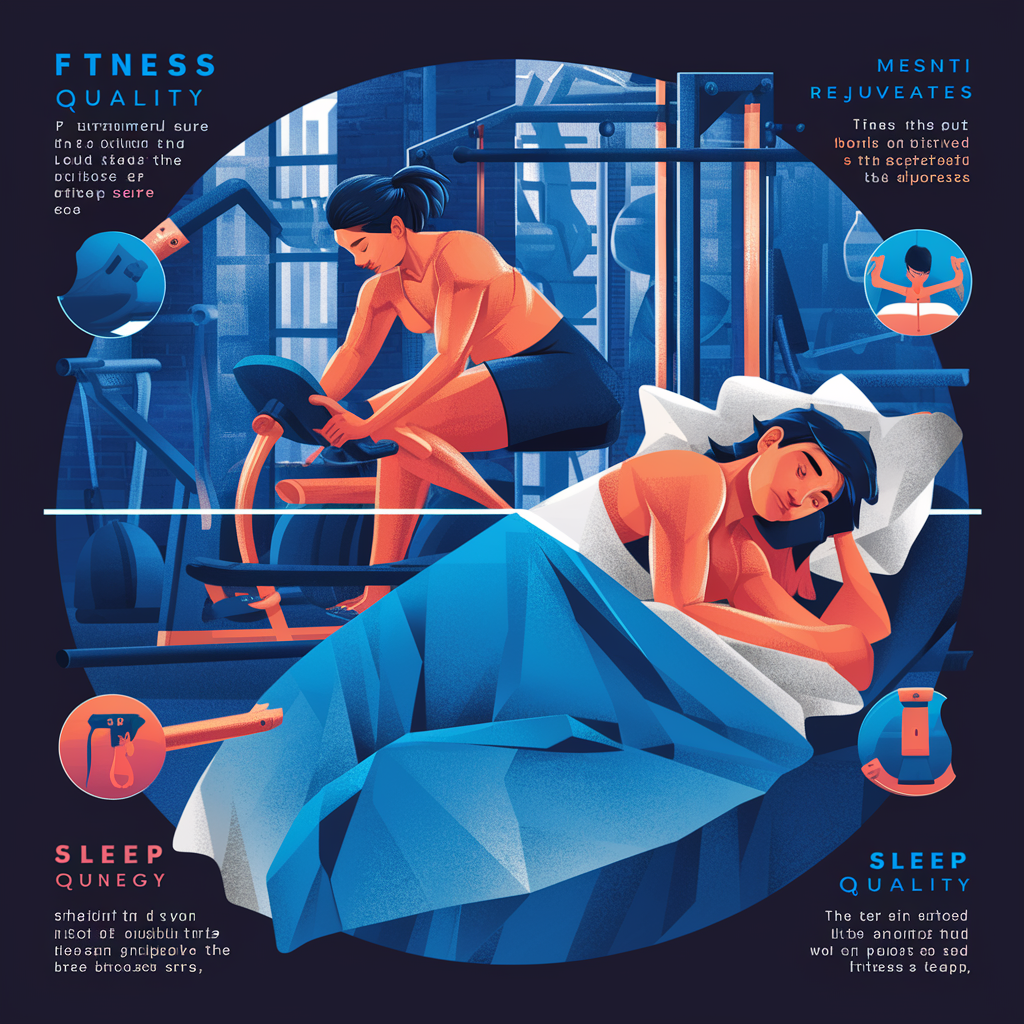What Every Fitness Enthusiast Should Know About Effective Supplements vs. Fads
Let’s kick things off with a question: how many times have you found yourself at the local gym, surrounded by fitness fanatics who swear by the latest supplement? You know the type—the ones who seem to have an unending supply of energy and an Instagram feed bursting with perfectly chiseled abs. But amidst the hype, a discerning fitness enthusiast must learn to distinguish between what truly works and what’s merely another flash in the pan. Spoiler alert: not every fancy supplement is worth your hard-earned cash.
The Allure of Supplements
Supplements are like the glittering jewels of the fitness world—attractive and often promising great things. From protein powders to pre-workout mixes, the market is flooded with options that claim to elevate your performance, enhance recovery, and even transform your physique overnight. But before you dive headfirst into this colorful sea of capsules and powders, let’s take a step back and examine what effective supplements really are.
Understanding the Basics
At their core, effective supplements serve as additions to your diet, helping you reach your nutritional goals. They can fill in gaps, assist in recovery, or provide a boost during workouts. The key here is understanding that supplements are meant to supplement—not replace—a well-rounded diet. I remember when I first started lifting weights; I thought protein powder was a magic potion. Spoiler: it’s not magic, just good nutrition in a shaker.
Types of Effective Supplements
There are several categories of supplements that have solid backing from research. Here’s a quick rundown:
- Protein Supplements: These include whey, casein, soy, and pea protein. They help in muscle recovery and growth, especially when consumed post-workout.
- Creatine: Known for its ability to enhance strength and power, creatine is one of the most researched supplements. It’s like having an extra gear—great for short bursts of high-intensity training.
- Branched-Chain Amino Acids (BCAAs): These can reduce muscle soreness and aid in recovery. They’re particularly useful during prolonged exercise sessions.
- Omega-3 Fatty Acids: While often overlooked, these are crucial for heart health and reducing inflammation. They might not give you a six-pack, but your body will thank you.
- Multivitamins: A good multivitamin can cover your bases, especially if your diet is lacking in certain nutrients.
While these supplements have shown efficacy in various studies, it’s essential to remember that the body’s needs are unique. What works wonders for one person may not yield the same results for another. And that’s where the pitfalls of fads come into play.
The Fad Phenomenon
Fads are like the fashion trends of the fitness world—here today, gone tomorrow. You might remember the low-carb craze that swept through gyms like wildfire, or the infamous detox teas that promised to cleanse your body of all sins (and then some). The allure of quick results often leads people to embrace these fleeting trends, but they can come at a cost.
Common Fads and Their Pitfalls
Let’s take a closer look at a few common fads that have made waves in the fitness community:
- Detox Teas: While they promise to flush out toxins, most of these teas are just glorified diuretics. You may lose water weight, but the long-term benefits? Not so much.
- Fat Burners: Often loaded with caffeine and other stimulants, these can lead to jitters and heart palpitations rather than sustainable fat loss.
- Meal Replacement Bars: Sure, they’re convenient, but many are packed with sugar and don’t offer the same nutritional benefits as whole foods.
- Collagen Supplements: While collagen can support skin and joint health, the evidence for its effectiveness in muscle building is still murky at best.
It’s astonishing how quickly these trends can arise, often fueled by social media influencers and celebrity endorsements. I chuckle when I think of the time I tried a popular detox cleanse after seeing it on Instagram. Let’s just say, my bathroom scale was not my friend during that week.
Why Fads Are Tempting
So, what draws fitness enthusiasts into the fad trap? One word: desperation. In a world where instant gratification reigns supreme, the idea of a quick fix can be incredibly enticing. The promise of six-pack abs in a week or the ability to shed ten pounds without lifting a finger can sound like music to our ears. However, it’s crucial to approach these claims with a healthy dose of skepticism.
Identifying Effective Supplements
With so much noise in the supplement industry, how can a fitness enthusiast cut through the clutter and identify genuinely effective products? Here are some strategies to keep in mind:
Research and Read Labels
One of the best ways to ensure you’re making informed decisions is to do your homework. Familiarize yourself with the ingredients and their effects. Look for brands that are transparent about their sourcing and manufacturing processes. If a product doesn’t disclose its ingredients, that’s a red flag. Like I always say, if you can’t pronounce it, don’t put it in your body.
Consult Professionals
Sometimes, it’s best to call in the experts. Nutritionists, dietitians, and fitness trainers can provide valuable insights tailored to your specific needs. I once had a conversation with a dietitian who pointed out that I was overcomplicating my nutrition by relying too heavily on supplements rather than focusing on whole foods. It was a lightbulb moment—one that saved me both money and stomach aches.
Look for Scientific Backing
While anecdotal evidence can be compelling, it’s essential to look for products supported by scientific research. Check for published studies on the efficacy of specific ingredients. If a supplement claims to enhance performance, there should be credible research to back it up. Don’t be afraid to dig a little deeper. Remember, it’s your health on the line.
Personalizing Your Supplement Strategy
Ultimately, the most effective supplement strategy is one that’s tailored to your individual goals, lifestyle, and dietary needs. Here are some tips to help you personalize your approach:
Assess Your Goals
Are you looking to build muscle, lose fat, or improve endurance? Your goals will dictate which supplements are worth considering. For example, if muscle building is your aim, protein and creatine might be at the top of your list. On the other hand, endurance athletes may benefit more from BCAAs and electrolyte supplements.
Listen to Your Body
Your body is an incredible machine that often gives you signals when something isn’t right. If you try a new supplement and notice adverse effects—such as stomach issues or increased fatigue—don’t hesitate to reassess. It’s all about finding what works best for you. I learned this the hard way after trying a popular pre-workout that left me feeling jittery and anxious. Lesson learned—stick to what feels good!
Balance Is Key
Remember, supplements should complement a well-rounded diet, not replace it. Focus on whole foods first and foremost. Incorporate plenty of fruits, vegetables, lean proteins, and healthy fats into your meals. Think of supplements as just that—supplements to support an already healthy lifestyle.
Common Misunderstandings About Supplements
There’s a lot of misinformation floating around about supplements that can lead to confusion. Let’s clear up some common misunderstandings:
More Is Not Always Better
Many people assume that taking higher doses of a supplement will yield better results. Unfortunately, that’s not how it works. In some cases, exceeding recommended dosages can lead to adverse effects. Moderation is key—just because that protein powder promises 50 grams per serving doesn’t mean you need to consume it all at once!
Supplements Are Not Magic Pills
Let’s get real for a moment—no supplement will replace hard work. While they can enhance your performance and recovery, they won’t do the heavy lifting for you (pun intended). Consistent training and a balanced diet are the true drivers of results.
Quality Over Quantity
It’s easy to get caught up in the latest trends and products, but the quality of the supplement matters more than the quantity. Invest in reputable brands that have a track record of safety and efficacy. As the saying goes, “you get what you pay for.”
Conclusion: Navigating the Supplement Landscape
As you navigate the often overwhelming world of fitness supplements, keep in mind that knowledge is your best ally. By differentiating effective supplements from fleeting fads, you can make informed decisions that align with your personal health goals. Remember to consult professionals, do your research, and most importantly, listen to your body.
In the end, the journey to achieving your fitness aspirations is as much about enjoying the process as it is about the results. So, grab your favorite protein shake, strap on those sneakers, and embrace the ride. After all, the only thing standing between you and your goals is the next set of weights (and maybe a good supplement or two).
Happy lifting!




